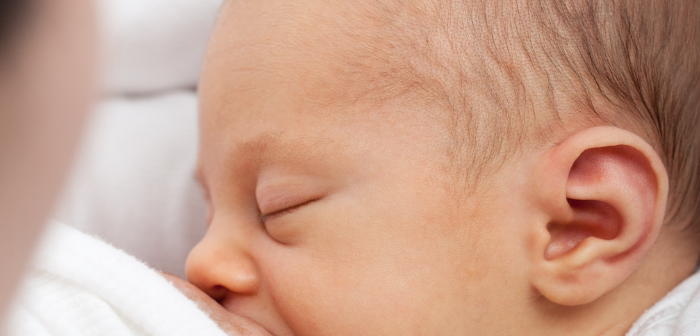It is a well-established fact that the best food for a newborn baby is breast milk. There are two reasons for this: breast milk provides protection against infection and illness, and it also promotes strong and healthy growth. This blog is all about How to Prepare for Breastfeeding Before Giving Birth.
It is highly recommended that you feed your baby with breast milk at least for the first six months after birth. However, even a short period of breastfeeding will be beneficial for their development.
Why is breastfeeding beneficial for your baby?
Breast milk plays a vital role in your baby’s first-year growth. It also protects them from possible illnesses and infections. Here are some of the benefits of breastfeeding:
- Your newborn baby will obtain a precise amount of nutrients, including proteins and vitamins.
- Breast milk contains antibodies that will protect your baby from various illnesses.
- As breast milk is easier to digest than formula milk, babies may experience fewer problems relating to gas or stomach pains.
- Breast milk is nature’s baby food and is always on hand. Remember, you will continue to produce more milk if you breastfeed.
- Breastfeeding can lower the risk of sudden infant death syndrome (the unexplained death of a baby under the age of one).
Breastfeeding is also beneficial for mothers as it increases the body’s production of oxytocin, a hormone that helps a mother’s womb regain its pre-birth size. Furthermore, it can contribute to stopping any bleeding after delivery.
What steps do you need to take to prepare for breastfeeding?
Before giving birth, you should take the following steps:
- Take advantage of the excellent prenatal care on offer – This will help you avoid the possibility of a premature birth.
- Attend a breastfeeding class or support group – You should see this as an opportunity to ask questions or raise concerns about breastfeeding. According to this article, your midwife can provide you with relevant breastfeeding resources.
- Purchase the breastfeeding supplies you will need, such as nursing bras and nursing pillows.
- Talk to your doctor or midwife about your breastfeeding plans – Most of your discussions are likely to cover the following topics:
- Will the hospital or delivery facility be baby-friendly and offer breastfeeding support?
- Can they refer you to a lactation consultant (if necessary)?
- Is it possible to disclose any breast surgery/injury you may have had? You may also wish to mention any medications or substances you may have taken that could affect your breastfeeding plans.
Once you have given birth, you should follow the guidance below to help ensure an enjoyable breastfeeding experience.
- If possible, you should immediately provide your baby with a skin-to-skin cuddle.
- Breastfeed your baby at the earliest opportunity.
- If you encounter a problem while breastfeeding, seek help from a lactation consultant.
- Ask the hospital staff to refrain from handing out formula milk or pacifiers (except in a medical emergency).
- Make sure your baby is always with you in your room so you can breastfeed them whenever they need it.
- Avoid offering your baby a pacifier or artificial nipples until they are adept at latching onto your breast. This can take around a month.
It is also strongly recommended that you talk to your partner and family members about breastfeeding as they will be able to:
- Show support by encouraging you to achieve your breastfeeding goals.
- Lend an ear if you need to discuss your concerns.
- Help you with any chores, and ensure you are eating well and have enough rest.
- Cuddle, play with or talk to the baby and take care of any other children you may have.
Additional breastfeeding tips
- You will notice that your baby is hungry if they:
- Become more alert and active
- Put their hands or fists to their mouth
- Use their mouth to produce sucking motions
- Turn their head to look for the breast
Don’t rely on them crying as this may only occur during the late stages of hunger. Over time and with experience you will easily recognise your baby’s feeding cue.
- Follow your baby’s breastfeeding habits
Your baby will usually let go of your breast once they have finished feeding. If they are still hungry, try offering the other breast.
- Keep your baby close even when they are asleep
Make sure you maintain skin-to-skin contact with your baby to soothe them when they cry. This will also enable you to monitor their heartbeat and breathing. It may be a good idea to place a crib or bassinet in the bedroom as this will make it easier for you to breastfeed at night. In addition, studies have suggested that sharing the bedroom will reduce the risk of sudden infant death syndrome.
What nutrients do you need for breastfeeding?
If you are pregnant or breastfeeding, you will need an additional 300 to 500 calories per day. This will enable your body to support and feed a growing baby. Here are some of the recommended nutrients you need when breastfeeding:
- Calcium
You should build up your bones and teeth with at least 1,000 milligrams of calcium every day. You can obtain calcium from:
- Low-fat dairy food
- Orange juice (calcium-fortified)
- Cereal, kale and other milk alternatives
- Folic Acid
Folic acid is essential in the development of your baby’s brain and spinal cord. It also aids in the production of red and white blood cells. As a result, you should try to ingest at least 0.4 milligrams of folic acid every day before conceiving and during early pregnancy. This can lower the risk of neural tube defects.
During your second and third trimesters, and the breastfeeding phase, your folic acid intake should increase to 0.5 or 0.6 milligrams per day. You can obtain this mineral from leafy green vegetables, citrus fruits, fortified bread and cereals.
- Healthy Fats
You will need healthy fats to support your baby’s growth and development during your pregnancy. Make sure you go for unsaturated fats which are abundant in vegetable and olive oil or fatty fishes such as salmon.
- Protein
Protein is important for your baby’s muscles, bones and overall growth. You will also need to take in more protein during your pregnancy. However, try to avoid protein supplements and instead use the following sources:
- Beans
- Fish
- Lean meat
- Nuts or nut butter
- Eggs and other poultry products
- Tofu
Other nutrients you need in your diet include carbohydrates, fibre, iodine, iron, and vitamins A, B12 and D.
Conclusion
As breast milk will support your baby’s health and overall development, especially during their first few months, you will need to prepare carefully to help ensure your breastfeeding is a success. You can ask your doctor or midwife to help you come up with a breastfeeding plan. Furthermore, you must remember to take in nutrients such as calcium and folic acid while you are breastfeeding. This will help both you and your baby to remain healthy and strong.







